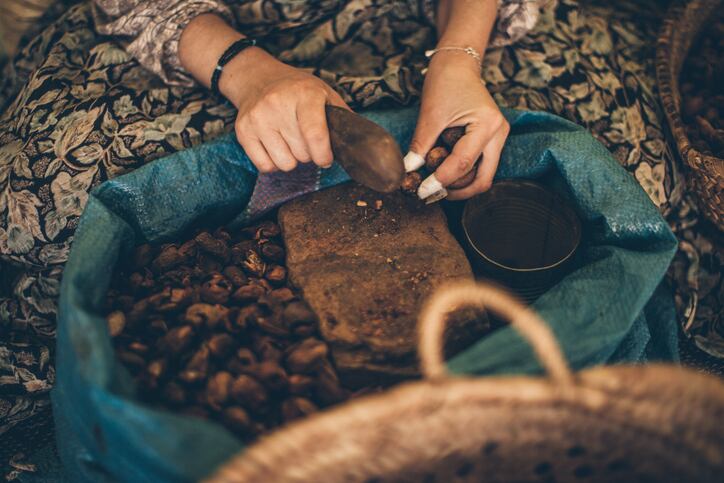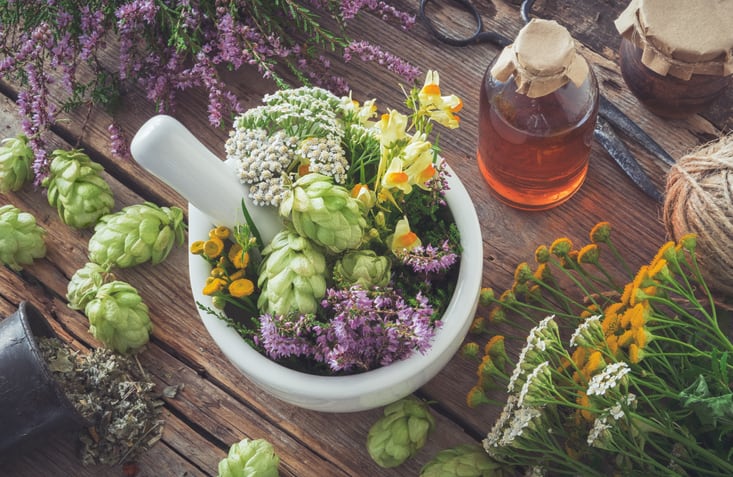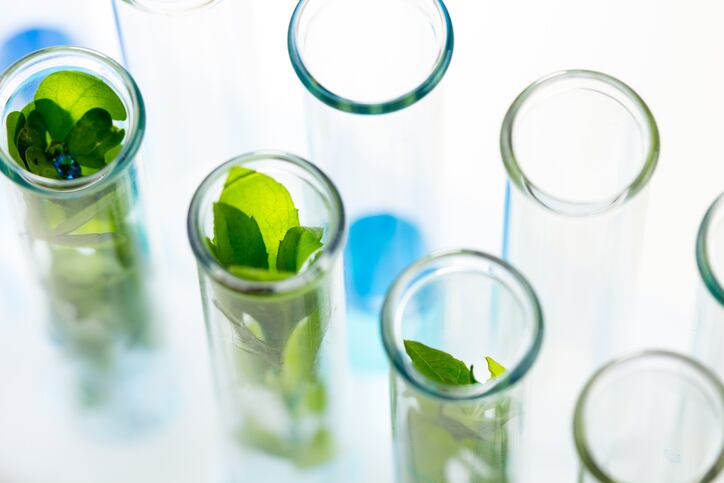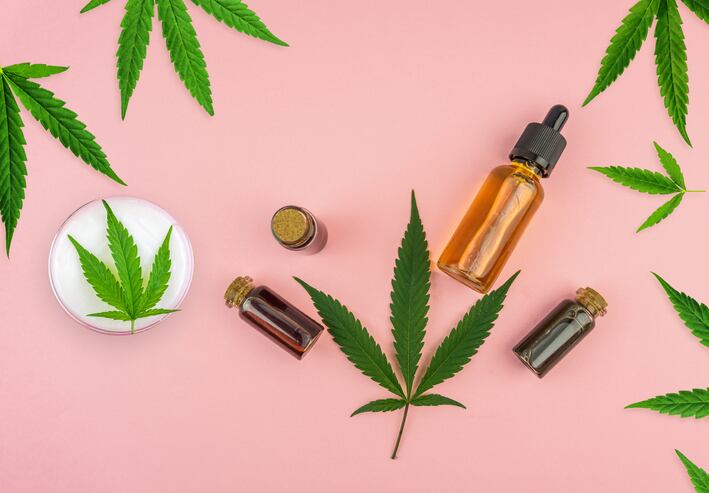Swiss non-profit organisation FairWild Foundation established its standard and certification scheme over ten years ago to promote the sustainable harvest and fair trade of wild ingredients, including plants, fungi and lichen, and transform resource management and business practices around this.
And FairWild worked with numerous supply chain participants to achieve this, including operators (harvesters on the ground), traders and processors (those sourcing and processing wild harvested ingredients), and licensees (those selling, distributing or manufacturing goods with these ingredients). And with a growing number of participants worldwide across various industries, FairWild said interest from the beauty world had started to pick up.
But does beauty really need a certification to sustainably work with wild plants?
“Businesses can obviously improve the sustainability of their supply chains independently, without certifications. But I think where certification does come into its own is communicating that outwards, and there being verification that the standards have been reached and maintained,” said Emily King, business engagement officer of FairWild Foundation.
“Consumers really value third-party, independent certification claims,” King told CosmeticsDesign-Europe.
Only 7% of wild medicinal aromatic plants have a conservation status
For wild ingredients especially, she said certification programmes were highly valuable because there were so many unknowns in the field, and only a small number of wild ingredients worldwide assessed for population viability, sustainability and threats facing them.
“We have quite a good idea how many animal species we have worldwide, but with plants it’s thought there are far more that aren’t known to science yet,” King said.
“…If we take medicinal aromatic plants, a lot of which are also cosmetic ingredients, of those ones that we know about only 7% have actually been assessed for conservation threat status. That leaves a huge number we just don’t know what the status is. But looking at the broader state of biodiversity we can make assumptions, and it’s not a pretty picture.”
King said of those wild plants that had been assessed, one in five were threatened with extinction.
“If you extrapolate that out and think of the types of biodiversity that are being threatened, it’s not a great picture for wildlife. What threatens wild plants especially is things like over-harvesting but also habitat loss,” she said.
Sustainable sourcing of ‘key ingredients’ in beauty - shea, argan and candelilla

Over-harvesting and habitat loss were issues the FairWild Foundation looked at closely under its certification programme and ensuring continued use of certain plant species in a sustainable way was the goal, King said.
“There are a lot of traditions and old and long-standing practices around use of these plants. It’s not saying there’s no place for that in the modern world – there’s lots of ingredients being used now and taken into medicinal use or cosmetic use – it just needs to have a sustainable element.”
Sustainable sourcing and use of wild plants, she said, also protected the people and animals associated with them through shared habitat, she said. Add to that the strong business case for brands and manufacturers, and she said the value of FairWild certification was clear.
“If you go to all the trouble of setting up your supply chain and making a product and putting it on the market, and five or ten years down the line you have to withdraw that because the ingredient hasn’t been sustainable harvested, that doesn’t make sense.”
King said that for beauty in particular, where “so many key ingredients” in cosmetics were derived from wild plants – argan oil, shea butter, candelilla, rose hip oil and other essential oils, and fragrance components, to name a few – there was a “huge space for FairWild to have an impact”.
Some ingredients used in cosmetics already had FairWild-certified options, including peru balsam and baobab oil, but she said the Foundation would like to see more wild ingredients certified. Certifications on widely used ingredients like shea butter, candelilla and argan oil or ingredients especially under threat like sandalwood and jatamansi would provide “an avenue to ensure sustainable and responsible sourcing” in the category, she said.
Beauty supply chains can be built to protect wild plants

Bryony Morgan, executive officer at FairWild Foundation, previously told CosmeticsDesign-Europe there had been some “pick-up” in interest and engagement of FairWild certification from the health and beauty sector in recent years – a shift that was “really exciting” for the organisation. But Morgan said the beauty industry could do so much more and King agreed: “There’s still space to grow as a whole industry.”
King said beauty manufacturers could start by looking at their current supply chains, because it was possible for suppliers and processors to obtain FairWild certification on wild ingredients being used.
“For larger businesses or businesses that have invested a lot in nurturing their own supply chains, certification of their own suppliers would be a great way to go. And I know this is what some of the brands who use FairWild certification have done.”
For smaller independent brands, she said working with suppliers who were already FairWild certified was probably the best way forward.
“We would encourage all businesses, including cosmetics and personal care companies, to examine their own supply chains and think about whether they’re set up for long-term resilience, in terms of their wild plant ingredients. Can they afford to lose the supply of a key ingredient a few years down the line, if right now it’s being harvested unsustainably? It’s also about thinking about the harvesters and how scrutiny-ready those are,” King said.
FairWild Week 2020 – Learning, sharing and engaging
For the entire week of June 22 – June 26, FairWild will be promoting its concepts, themes and priorities webinars and social media engagement – targeting both consumers and industry.
Launched initially in 2017, the organisation’s annual campaign aimed to raise awareness about the importance of sustainable and equitable trade in wild plants.




